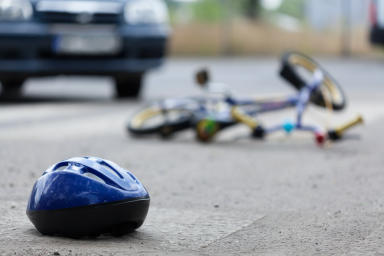Wisconsin Bicycle Laws

Wisconsin is well known for its diverse geography. The state is not only bordered by great bodies of water, such as Lake Michigan and the Mississippi River, but it also has some interesting geographic locations, like the bluffs and ravines in the west, the flat and fertile land in the south, and the wetlands in the north. While the state’s varied landscape presents multiple challenges to travelers if they are not careful, it has also encouraged Wisconsinites to get on their bikes and explore the great outdoors.
The Badger State is proud of being bike-friendly. In fact, the Wisconsin Department of Tourism’s official website highlights that biking is more than just an outdoor recreational activity in the state. Travel Wisconsin notes that biking is a fun way to not only visit its many cities and towns but also explore its natural views at any time of the year. Aside from mountain biking, bikers are encouraged to utilize paved bike routes across the state for a scenic and pleasant experience.
With biking highly encouraged, it is important that cyclists are aware of Wisconsin’s biking laws since untoward incidents can happen at any time. In its 2020 crash statistics report, the Department of Transportation showed that 619 bicycle riders were involved in crashes within the state. The report also recorded that 617 cyclists were hurt, with 74 seriously injured, and 12 died in that year alone, highlighting the potential dangers bicycle riders face when traveling through the state.
As cyclists continue to face potential risks on the road, this article lays out Wisconsin’s bike laws and regulations to guide bicycle riders on how they can protect themselves from accidents and their financial and legal consequences.
General Guidelines for Wisconsin Cyclists
Since bicycles are more vulnerable to vehicular accidents, the DOT and the Wisconsin state government have put in place general rules for cyclists to be aware of when riding on roadways with other bikes or larger vehicles:
Bicycles and similar modes of transportation are considered vehicles according to state road laws and should follow the same rules — such as following the flow of traffic and riding on the right side of the road — except for laws expressly for larger vehicles.
Cyclists are required to bike at least three feet from passing or parked traffic. On narrow roads, they should stay in the middle of the lane at least three feet behind the vehicle in front of them.
When slowing down, stopping, or turning, cyclists should use proper hand or light signals. They must signal continuously for 50 feet before their designated turn. However, an exception is allowed if the hand or arm signal would compromise the cyclist's ability to operate the vehicle.
Cyclists should wear or use proper visibility gear, such as retro-reflective clothing and front and back bicycle lights, to minimize accidents. While the state does not have a law on wearing helmets, the DOT and local governments highly encourage cyclists to wear helmets when riding their bicycles to prevent head trauma and injury when in an accident.
Wisconsin Cyclists’ Rules of the Road
Chapter 346 of the Wisconsin Statutes provides significant and detailed regulations for bicycle riders across the state. In the rules regarding driving on roadways, bicycles are allowed to ride on the shoulder of the highway unless authorities specifically prohibit it. Bikes are also not allowed on expressways or freeways, as there is a state law explicitly banning them from entering these roads.
The law allows cyclists to ride side by side on a roadway as long as it does not obstruct the flow of traffic. When riding on a route that has two lanes or more, cyclists must ride side by side within a single lane. Riding more than two abreast or side by side on roadways is generally only allowed if there is a designated area for it.
When encountering other cyclists in the same direction, bicycle riders are required to make an audible signal before overtaking to prevent collisions. Cyclists must also yield the right-of-way to bicycles and pedestrians already present when entering the bicycle lane.
Special Bicycle Laws in Wisconsin
The state government also enforces special laws that apply to bicycles. The Wisconsin Statutes, Chapter 346, Section 79, establishes the regulations that cyclists must adhere to whenever they use their bicycle on a highway or in a bicycle lane.
Cyclists are not allowed to ride their bicycles in any other manner that strays from sitting properly on the saddle. This ensures that the rider is safe and stable when using their bike, reducing the risk of falling or losing balance.
The state also prohibits cyclists from exceeding the designated passenger capacity of their bicycles. There is an exception to this, however, as bikers can exceed the designated capacity provided that they are carrying a child in either an auxiliary child’s seat or an attached trailer.
Cyclists in Wisconsin are also prohibited from carrying packages or items that would prevent them from keeping two hands on the handlebars of the bike. This prohibition guarantees that the bicycle rider stays in control of their vehicle during quick maneuvering.
Other Prohibitions under Wisconsin’s Bicycle Laws
Section 346.94 of the Rules of the Road specifies that vehicle operators are not allowed to drive on sidewalks. While this rule also applies to bicycles, as they are considered vehicles under state law, some city ordinances may allow bicycles on sidewalks under certain conditions. In such cases, cyclists should yield the right-of-way to any pedestrian and exercise due care and diligence.
Cyclists are also prohibited by law from being engaged in or occupied with an activity that interferes with their driving. This can range from watching a video to texting while riding their bikes, as these distractions can divert the cyclist’s attention and cause accidents.
It is also illegal for cyclists to hold on to or attach to other vehicles on a roadway, especially when in motion. This means grabbing onto the back of a motor vehicle is prohibited. Similar to the rule above, this is to ensure that cyclists maintain control over their vehicles and reduce the risk of accidents.
Finally, individuals who use mopeds or motor bicycles are not allowed to operate on a bicycle way, as the differing speeds of the vehicles could compromise the safety of other cyclists.
Is Wisconsin a No-Fault State for Bike Accidents?
Wisconsin operates under a tort system, meaning it is an at-fault state, where the person responsible for the accident is liable to compensate the victim for their accident-related expenses. Compensation can be pursued in and out of court through different avenues:
The victim’s insurance company can file a subrogation claim with the liable party’s insurance carrier after the victim filed an insurance claim;
The victim can file a third-party claim with the liable party’s insurance company;
The victim can negotiate with the liable party for an out-of-pocket settlement; or
The victim can file a personal injury lawsuit.
How Much Can Someone Sue for a Bicycle Accident in Wisconsin?
Victims can sue liable parties to recover economic and non-economic damages in bicycle accident cases. Economic damages cover tangible expenses caused by the accident, such as medical bills and property repair costs. Non-economic damages refer to compensation for the emotional or mental effects the accident caused, mainly the pain and suffering the victim endured after the accident or during recovery.
According to state laws, there is no limit on the damages a court can award in a bicycle accident case. However, the state’s modified comparative fault rule adjusts the amount the liable party has to pay. Based on the rule, the amount of the damages to be paid will be based on how much the victim contributed to causing the accident, so long as the percentage of the victim’s liability is 50% or lower. For instance, if the victim is expected to receive over $50,000 but is found to be at comparative fault by 40%, then they are only able to recover 60% or $30,000 in damages. The rule also states that if the victim’s comparative fault is equal to or higher than 51%, they aren’t allowed to pursue compensation against the liable party anymore.
What Is Wisconsin’s Statute of Limitations for Bicycle Accidents?
As a general rule, bicycle crash victims in Wisconsin have up to three years after the incident or after getting diagnosed with an accident-related injury to file a personal injury case against the people responsible. This period is shortened to two years for wrongful death cases arising from bike accidents. If these deadlines are missed, the defendant will most likely file a motion to dismiss the case, which courts will generally approve, barring certain circumstances.
There are exceptions to these deadlines, though: if the victim was underage or mentally ill during the time of the incident, the law gives them up to two years after turning 18 or recovering from their illness to file a case against liable parties. The law also pauses the statute of limitations if the liable party is out of the state and a case hasn't been filed against them.
Legal Resources for Wisconsin Bicycle Accident Victims
Wisconsin State Bar Lawyer Referral and Information Service
The Wisconsin State Bar has set up the Lawyer Referral Service to assist the public in identifying what specific legal issues they have and connect them to relevant law firms. The service offers over-the-phone consultations with legal assistants trained in identifying legal matters. Its member attorneys have their geographic and legal practice information stored on its online database, allowing prospective clients to browse local law firms suited to their type of case. If a client decides to contact a member attorney for a consultation, the attorney will charge no more than $20 for the first half hour of the first consultation.
The League of American Bicyclists
The League of American Bicyclists is a membership organization centered around making the USA bicycle-friendly. It does so by establishing local bike clubs to help Wisconsinite cyclists find a community to ride with, advocating for increased legislation and funding for bicycle safety and infrastructure, and maintaining a directory of attorneys dedicated to advocating for bikers involved in accidents. These attorneys personally support the organization as registered members and have proven their extensive experience championing cyclists in court.
Wisconsin Bike Federation
The Wisconsin Bike Federation is a non-profit organization that promotes cycling throughout the state through educational courses, advocacy programs, and legislative initiatives. Its members have implemented and maintained several useful community programs for cyclists of all ages, such as its youth and adult cycling courses and mobile bicycle repair program. The organization continuously advocates for increased legislation concerning bicycle safety and community infrastructure.
State of Wisconsin Department of Transportation</h3>
Wisconsin DOT supports all forms of travel through the construction and maintenance of roadways and the propagation of safety materials. Its site shares several useful cycling safety tips and has a database of printable safety brochures available upon request. It also partners with other governmental departments to create additional media, like informational pamphlets about popular biking trails throughout the Badger State, as well as presentations and published media on the physical health benefits of cycling.
Expertise.com StaffAuthor
Step into the world of Expertise.com, your go-to hub for credible insights. We don't take accuracy lightly around here. Our squad of expert reviewers, each a maestro in their field, has given the green light to every single article you'll find. From rigorous fact-checking to meticulous evaluations of service providers, we've got it all covered. So feel free to dive in and explore. The information you'll uncover has been stamped with the seal of approval by our top-notch experts.




